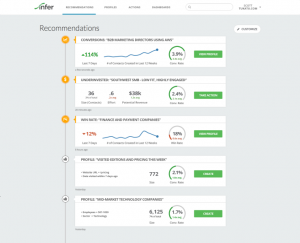Most people don’t like annual performance reviews. Managers hate doing them and employees hate getting them. Yet, they’re still widely used.
There are still many mistakes made in the performance review process. Here are some tips you can use to make sure they’re great.
Come Prepared To The Review
There’s nothing more annoying for an employee than coming to a performance review (which they’re already nervous for), and seeing that you haven’t prepared any important questions to make this an efficient meeting.
It can be hard to come up with the perfect questions to ask employees, but it’s so important to come prepared.
Use it as an opportunity to find out how the employee feels about their work and if they have opportunities for personal growth. Frame all of your questions with this in mind.
You should be keeping notes all year long. This way, you’ll avoid what’s known as the recency effect.
This happens very frequently at appraisal time. Managers tend to evaluate employees based on their recent past instead of taking a more complete picture.
By keeping notes every time you meet with employees (maybe during a monthly one-on-one) you have a complete picture of their performance.
Do A Peer Review
Make sure to get insights about the employees from many different people.
The concept of 360-degree feedback is an important one, because it helps you avoid any of your own biases towards an employee.
As you collect feedback from peers, you’ll start to build a profile of the employee. It’s likely that you’ll hear common themes repeating themselves (both positive and negative) about the employee.
This is similar to the point above about coming prepared to the meeting. You should have asked peers questions about an employee before their review to better prepare yourself.
Employees Should Self-Evaluate
This is probably the most important point on this list.
You should be asking employees to self-evaluate before the review. This will make the employee more receptive to feedback, because they’ll have had a chance to think about their mistakes and accomplishments.
Letting employees reflect on their own work is a great way for them to grow
You could even send the employee one or two questions to help them get started.
Some good examples are:
- What do you think went well during the last month?
- What’s one project/task you worked on that you’re particularly proud of?
- What do you think you could have done better on?
- What is one thing you’ll work on improving for the next time we meet?
Follow effective action with quiet reflection. From the quiet reflection will come even more effective action.Peter Drucker
Listen During The Review
Many managers make this mistake.
Most people do not listen with the intent to understand; they listen with the intent to reply.Stephen R. Covey
If you’re listening to your employees during the review process, you’ll get some incredible insights.
A skill you should look to develop is active listening. Active listening will help you become a better listener and actually hear what the other person is saying, not just what you want to hear.
It is a proven technique that helps people talk and feel free to continue talking.
Here are a few ways you can build better active listening skills:
- Repeat every so often. For example, “If I understand correctly, you..”
- Recap at the end. Something like “Ok, so just to be clear, the main issue you’re facing is…”
- Provide encouragement. Use words to help get more detail out of an answer. Words like “And?”, “Then what happened?”, “Oh, really?”
- Ask hypotheticals. For example “What do you think would happen if you..?”
Generally, people who think one-on-one meetings are a bad idea have been victims of poorly designed one-on-one meetings. The key to a good one-on-one meeting is the understanding that it is the employee’s meeting rather than the manager’s meeting.Ben Horowitz
Don’t Do The Feedback Sandwich
For those that might not be familiar, the feedback sandwich is when a piece of constructive feedback is given between two positive compliments.
The idea being that the feedback will be less shocking to the employee if it’s included with positivity.
The problem is, the feedback sandwich doesn’t work
Employees are smarter than you think. They know what you’re trying to do, and will likely take the positive comments less seriously, thinking it’s not genuine.
This is also risky for future praise, employees might take it less seriously.
Another reason the feedback sandwich could be dangerous is that sometimes employees only hear what they want. So if you say “You’ve been doing a great job, but one thing I’d change is…”, they stop listening after “you’ve been doing a great job.”
Plus, different employees want feedback based on their skill level.
A research paper, “Tell Me What I did Wrong: Experts Seek and Respond to Negative Feedback,” in The Journal of Consumer Research, says that when people are experts on a subject they want to hear negative feedback, while beginners are looking for positive feedback.
A much smarter idea is to be transparent when you give feedback.

Most managers are uncomfortable giving feedback to their employees, but there’s no real reason to be.
I’m not saying you shouldn’t praise employees, you definitely should. But, if you explain to employees that you’re doing this for their benefit, they should be understanding when you tell them what could be improved.
Praise Accomplishments
This could be done at the beginning or end of your performance review, but it’s important to set aside some time to praise specific accomplishments done by the employee since you last met.
Make sure to be specific in your praise, which is another good reason why regularly keeping notes is a good idea.
We spoke with John Schaefer, a well-known expert in the employee recognition field about some best practices in praising employees:
In a now famous article for Forbes, Josh Bersin writes about some research his firm did about building a recognition-rich culture.
We find that 87% of the recognition programs focus on tenure. Yes, that’s right. People get rewarded for sticking around.
What our research found was that tenure-based rewards systems have virtually no impact on organizational performance. Did you stay an extra year at your last job so you could get a 10-year pin? I doubt it.
That’s a huge problem. Luckily, his research found a much better solution to this problem.
He goes on to say:
On other hand, our research did find that modern, re-engineered recognition programs can have a huge impact on business performance. Companies that scored in the top 20% for building a “recognition-rich culture” actually had 31% lower voluntary turnover rates!
Keep It Positive
This is an important reminder for managers, try and keep the review as positive as you can.
Many managers will use a performance review as a venting session. The reason this happens is because most managers wait until the performance review to give all of their feedback.
All of the comments that the manager has have been building up in their mind, and now it all comes pouring out. This is another reason that giving employees feedback right away is important.
But even more important is how you frame your feedback.
Instead of saying something like “You should do this better next time”, or “What happened on that project?”, you can frame it to be much friendlier.
Something like “Do you think it would be better to do it this way? I wonder if we would get better results.” or “I’m just thinking out loud, but what if for our next project, we did it this way? What do you think?”
Notice how inclusive it is when you frame it that way instead.
Stick To The Date
Managers should be doing their best to never cancel or reschedule performance reviews unless it’s absolutely necessary.
You need to understand how seriously employees are taking this, even if they won’t admit it.
They get nervous the night before and hours before. It’s a lack of respect to cancel the appointment.
Not only that, but you should be on-time for that meeting. Showing up late is also a sign of disrespect to the employee and considering how nervous/excited they are, it’s not nice.
Pay Attention During The Review
Related to the last point, it’s important for managers to behave professionally during the review.
Don’t slouch in your chair, check your phone, or be picking your nose. Not only is this an important time for your employee, it’s an incredible opportunity for you to coach them to greatness.
It doesn’t take a lot of effort to go from good to great, or from great to amazing.
Pay attention to your employees and show them the respect they deserve.
In 1964, Harvard professor Robert Rosenthal did an amazing experiment at an elementary school.
The idea was to figure out what would happen if teachers were told that certain kids in their class were destined to succeed.
Rosenthal took a regular IQ test and put a fake cover page on it that said “Harvard Test of Inflected Acquisition”. He told the teachers that this test had the ability to predict which kids were about to experience a dramatic growth in their IQ.
He then chose students at random and told the teachers that these kids were experiencing a growth in IQ.
“If teachers had been led to expect greater gains in IQ, then increasingly, those kids gained more IQ,” he said.
As Rosenthal did more research, he found that expectations affect teachers’ daily interactions with the children. Teachers give the students that they expect to succeed more time to answer questions and more specific feedback.
This is an amazing lesson for managers.
Treat your employees with respect, show them attention, and they will succeed.
Have A Quick Feedback Loop
The research is very clear about this. The faster you give feedback, the more likely you are to change behavior.
The longer you wait to give feedback the more it loses its value.
There is no such thing as too much communication. You should be communicating with your employees all the time.
There are tools to facilitate this frequent feedback (like Officevibe) to help give employees an anonymous voice at work.
Performance reviews are only a small part of the complete performance management process.
Have A Complete Performance Management Process
Reviews (whether monthly or annually) are just a small part of a performance management process.
A complete process takes into account the entire quarter of performance, starting with goal setting.
At the beginning of a quarter, set objectives and key results for employees and meet every two weeks to see how they’re progressing. There is goal-setting software to help you with this.
From there, give feedback as frequently as possible and act like a coach, being there to help them grow as they need it.
Keep these things in mind when thinking about performance management:
- Come Prepared
- Do A Peer Review
- Have The Employee Do A Self-Evaluation
- Listen More Than you Talk
- Don’t Do The Feedback Sandwich
- Praise Accomplishments
- Keep It positive
- Stick to the date
- Be Professional
- Have A Quick Feedback Loop
Performance Review Questions To Use
Here are a few questions you can use for your performance reviews:
- What is your greatest challenge or roadblock?
- What strengths or talents do you possess that aren’t being used?
- What makes for a great workday?
- If you could change one thing about our company, what would it be?
- How do you feel the company and your team are doing?
- Do you receive sufficient feedback about your performance?
- What is most satisfying about your job?
- What is least satisfying about your job?
Any Performance Review Tips To Share?
As much as people hate performance reviews, they’re important because they help employees grow. The trick is about having a solid process that continues throughout the year.
What are some best practices you can share about performance reviews? Let me know your thoughts in the comments!
Business & Finance Articles on Business 2 Community(232)







